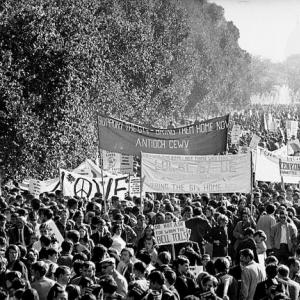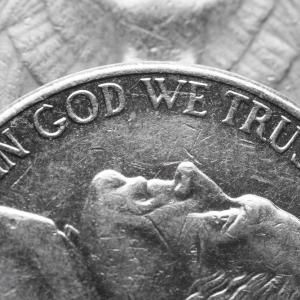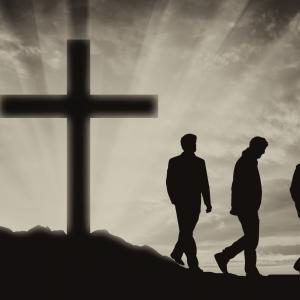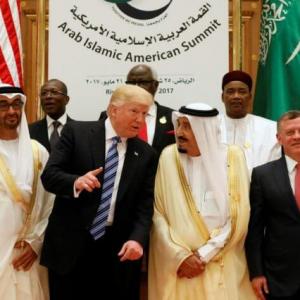David Mislin is Assistant Professor at the Intellectual Heritage Program at Temple University.
Posts By This Author
How Anti-War Protests 50 Years Ago Divided Churches and Helped Fuel the Christian Right
Times reporter Edward B. Fiske observed how conservative evangelical Protestants supported the war. Many, like the theologian and editor of Christianity Today, Carl F. Henry, believed it to be morally defensible. Fiske wrote that “the majority of laymen and clergy in this country” were more in agreement with Carl Henry than with William Sloane Coffin.
The Complex History of ‘In God We Trust’
Political rhetoric linking the United States with a divine power emerged on a large scale with the outbreak of the Civil War in 1861. M.R. Watkinson, a Pennsylvania clergyman, encouraged the placement of “In God We Trust” on coins at the war’s outset in order to help the North’s cause. Such language, Watkinson wrote, would “place us openly under the divine protection.”
Will Religiously Unaffiliated Americans Increase Support for Liberal Policies, in 2018 and Beyond?
During the late 19th century, unbelief and indifference to religion, especially the U.S.‘s dominant religion of Christianity, became more acceptable in public opinion. This was especially true among educated elites because of the combination of two phenomena. On the one hand, new scholarship called the origin and history of the Bible into question. On the other, evolution suggested that a divine being was not needed to explain the world’s development.
What Trump Missed in His Address on Tolerance — American Muslims
President Donald Trump, like his predecessors before him, has discovered the potent language of religious tolerance and interfaith unity when discussing Islam, as he demonstrated in his speech in Saudi Arabia to leaders of some 50 Muslim nations. But unlike previous presidents, he has not linked that rhetoric with recognition of the large, vibrant Muslim community in the U.S.



